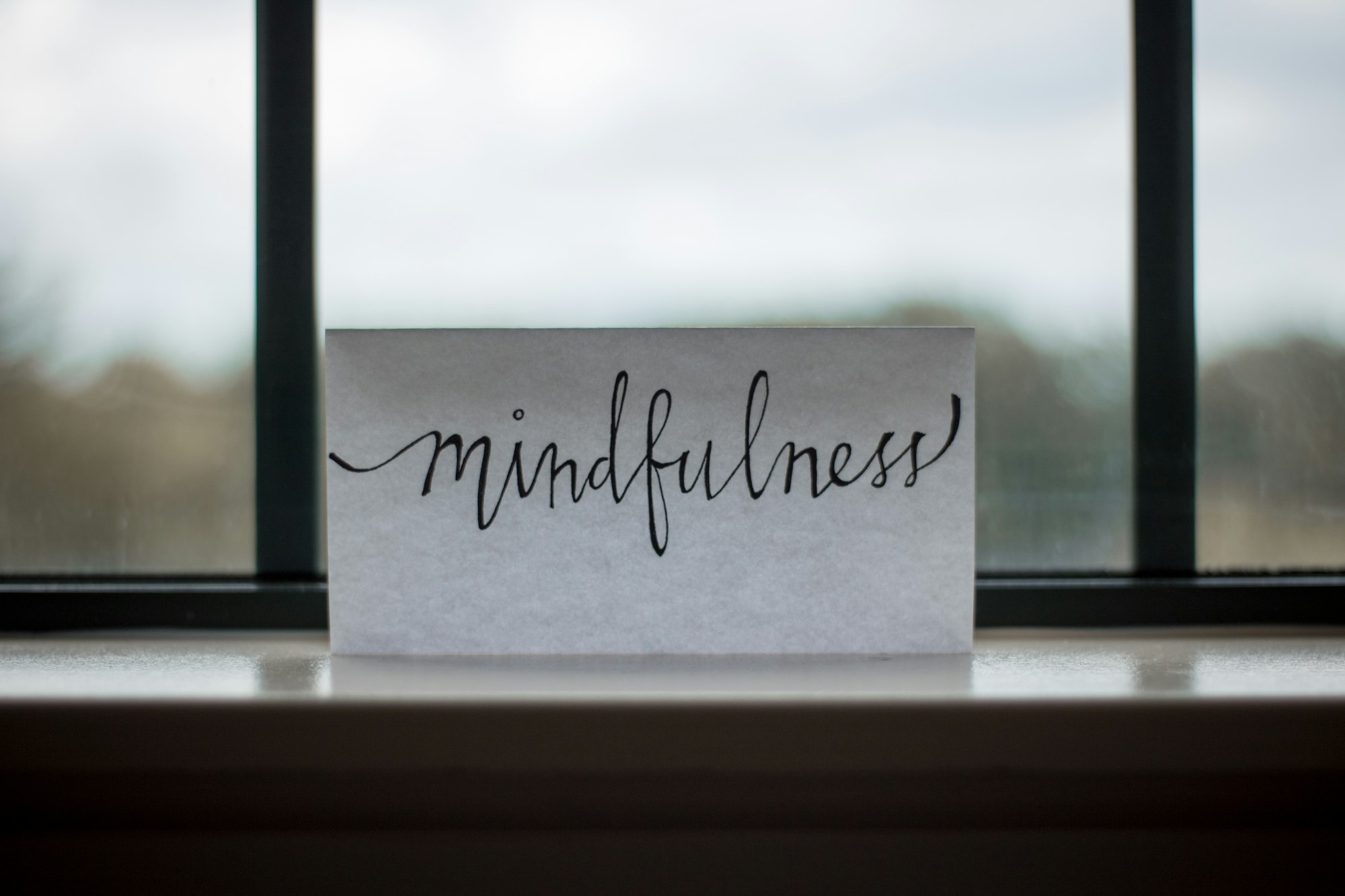What is Mindfulness, Anyway?

Most people have heard the word mindfulness. These days it's offered as part of many corporate wellness programs. I know coaches and trainers who offer it to medical students, college students, and leaders. My expertise happens to be mindfulness in business. I love helping tech teams succeed.
So, what is this mindfulness thing, anyway?
I came across this definition while researching for this post, (I simply typed the word mindfulness into my Google search engine):
Mindfulness is a type of meditation in which you focus on being intensely aware of what you're sensing and feeling in the moment, without interpretation or judgment. Practicing mindfulness involves breathing methods, guided imagery, and other practices to relax the body and mind and help reduce stress.
Psychology Today says Mindfulness is a state of active, open attention to the present. This state is described as observing one’s thoughts and feelings without judging them as good or bad.
And IOSM, says Mindfulness is a 2,500-year old mental practice that quiets, calms and focuses the mind, and so strengthens our awareness and attention control. It is both a process of neural training, and a state of mind that reduces signals of pain, fear, and anxiety from the primitive brain, while strengthening mental clarity and executive capabilities in the neocortex...
And this is just scratching a teeny tiny bit of the surface. I bring this to mind because for someone new to all this mindfulness talk, it can be hard to choose the right program or practice technique.
What is the right approach? I've been a coach for almost a decade now and I still get asked this question.
My response: there is no right way to sharpen our skills or solve a problem. But I do know that it's helpful to have a good level of clarity about what you'd like to achieve. Without a decent level of clarity, our attention wanders to all things possible or past attempts that didn't pan out.
So mindfulness, as I teach it, helps us hone in our attention skills so we don't get swept away by what's interesting but ineffective.
Having attention skills support us as we build our business saves us lots of time and money. So we need to give our attention skills something to focus on and that starts with clarity.
Gaining Clarity
Starting with the clearest idea for what you want to achieve helps you hone in what resources, tools and skills you already have at your disposal. You'd be surprised how often people negate what they already have available to them such as referral partners or a good reputation in their community.
So getting a clear idea helps your mind sort for key words or experiences that already resonate with what you want to see in the world such as clients, money or mentors.
To help you get some additional clarity, I've put the first question from my intake form below.
Before answering the question below, I recommend taking a few moments to bring to mind the specific situation you'd like to create, (clarity).
Place your full attention on that situation, connect inward into your inner talk space, (Hear In - usually found near the ears) and internal mental screen (See In - usually found around the back of the head or behind the eyelids) before you answer the questions below. This will help you focus your attention on specific details that come up.
Q1: What do you want? (Answer as broadly as needed, this can shift and change as you gain more clarity.)
If you're new to mindfulness and have some general questions or would like more information about attention skill training for business, feel free to reach out.
If you're new to mindfulness or to Unified Mindfulness techniques, check out my short practice videos.